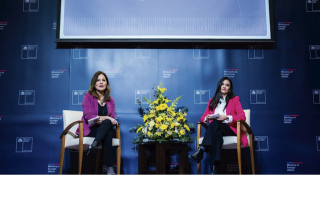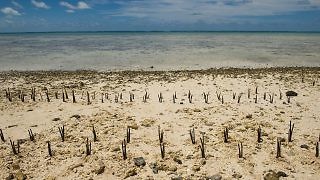The application of the WPS agenda has been hindered in places in Central America and the Caribbean that are not formally experiencing armed conflicts, but are nevertheless marred by violence.
Author: Evyn Papworth
-
-
The adoption of FFPs in Latin America is an opportunity to see how the region reimagines international feminist agendas and translates local feminist advocacy to the international arena.
-
An understanding of the gendered insecurities entrenched by natural disasters points to the need to expand the scope of the WPS agenda in order to address the structural violence of the climate crisis.







